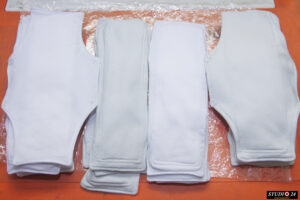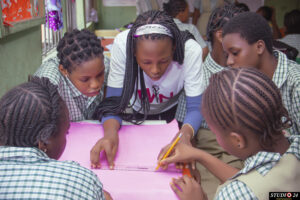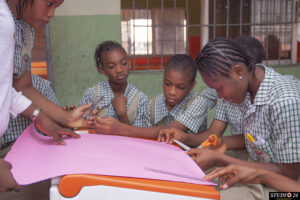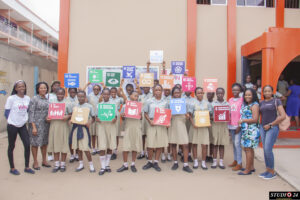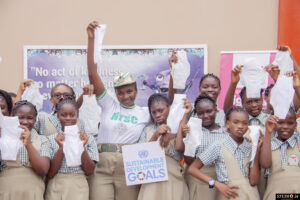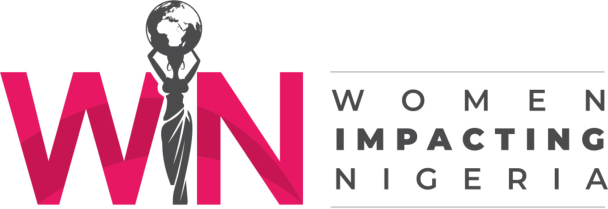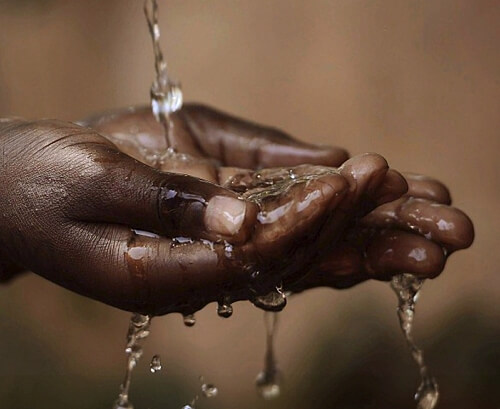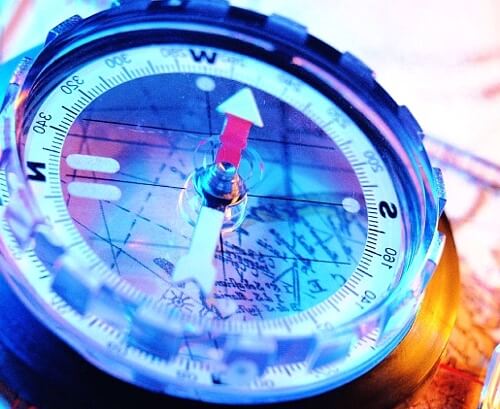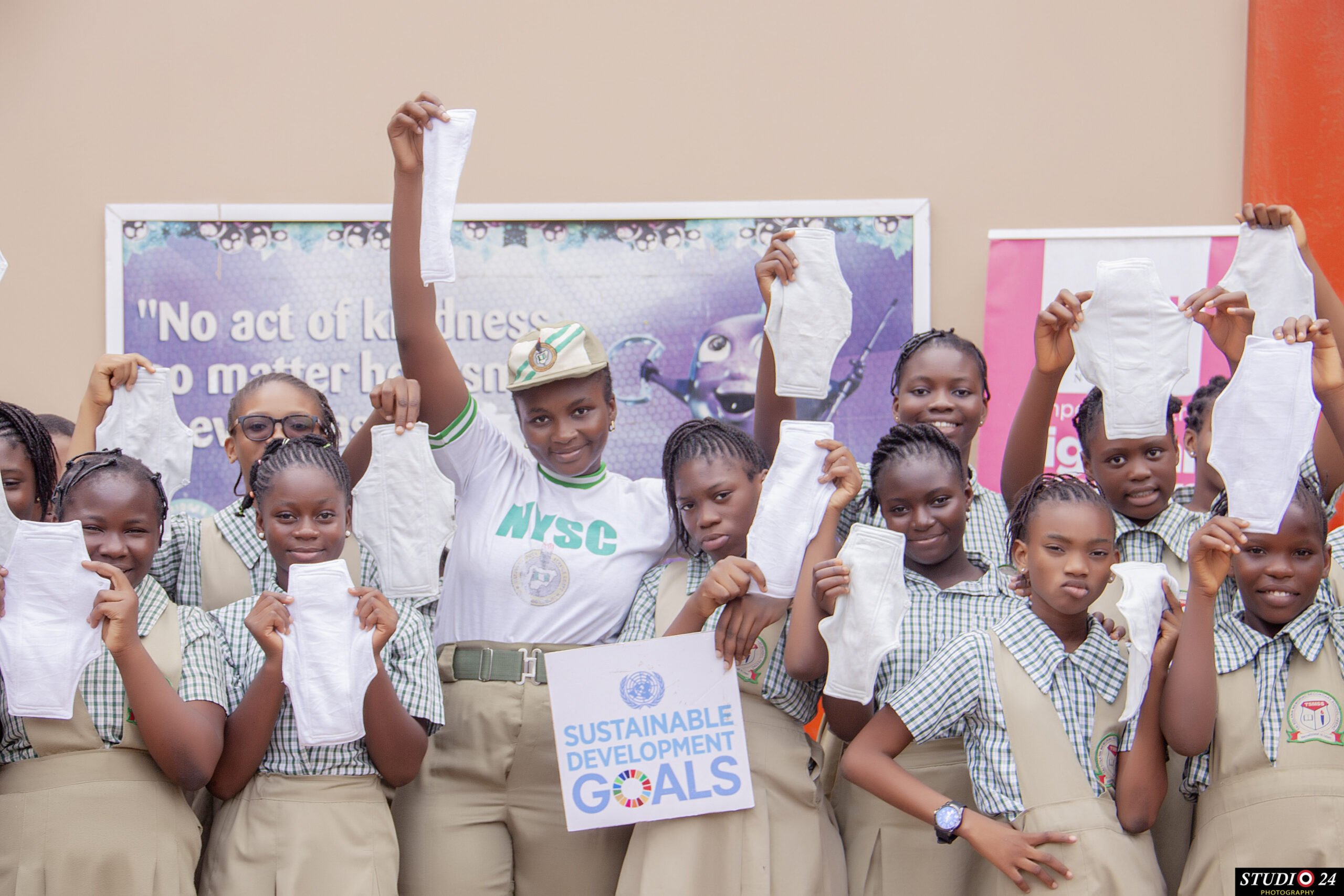On May 26, 2022, Women Impacting Nigeria (WIN) conducted an impactful End Period Poverty outreach at Amuwo Odofin Local Government Area in Lagos State. The initiative, titled ‘Pad a Girl,’ was sponsored by WIN and executed in collaboration with NYSC-SDGS Lagos, a Community Development Service group under NYSC Lagos.
Period poverty describes the lack of access to sanitary products, menstrual hygiene education, toilets, hand-washing facilities, and waste management. In Nigeria, approximately 25% of women and girls experience period poverty firsthand.
To address this issue, WIN partnered with NYSC-SDGS Lagos to support secondary school girls aged 10-18 years. The outreach specifically targeted female students from Tai Solarin Memorial School in Festac, Lagos.
A total of 52 girls received two reusable cloth pads each, along with confidence kits. The initiative included training sessions led by experienced resource persons on how to make and maintain these cloth pads. All beneficiaries were teenagers who had already started menstruating and were residents of the Amuwo Odofin Local Government Area.
The ‘Pad a Girl’ program proved to be a resounding success. It provided a cost-effective, healthier, and environmentally friendly alternative to disposable pads, greatly benefiting girls who previously lacked access to such resources. Many participants expressed that the sensitization session was enlightening, and they were pleased to see WIN’s commitment to their menstrual health.
In addition to providing confidence kits, the program significantly boosted the girls’ self-esteem. They felt empowered to openly discuss menstruation, a topic that was previously shrouded in silence and stigma.
WIN remains committed to raising awareness about menstrual health and invites partnerships and sponsorships from individuals and organizations that share this mission. We believe that no girl should miss school due to period poverty and that access to hygienic menstrual resources is crucial for the overall health of Nigeria’s female population.
This initiative supports the achievement of SDG 3: Good Health and Well-Being, and contributes to keeping girls in school, helping to bridge the gender gap in education.
